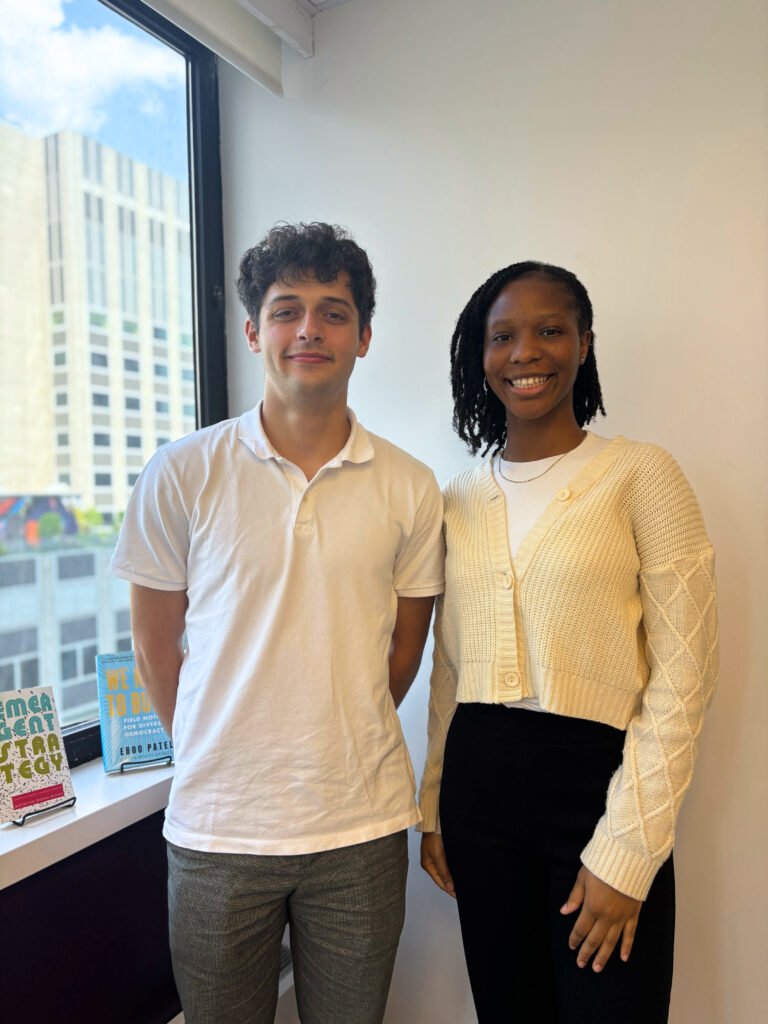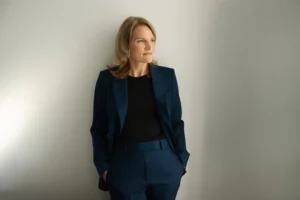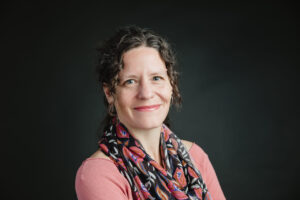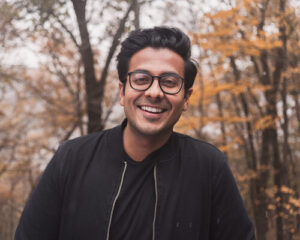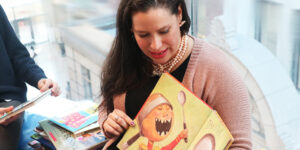What is one of your earliest memories of the power of human connection?
Yotam: The first thing I always think about is Hurricane Sandy. For a few days leading up to the storm, forecasts were warning people not to stay in New York City, especially on Long Island, if they could avoid it. We had family friends living on Long Island who were very scared, but they didn’t have the chance to leave the area. There weren’t any flights available, and the traffic was too much for them to drive out of the city. Up until a few hours before the storm, they were stuck until my parents refashioned our house into a mini double home. We had candles everywhere because the power went out in our house, and we had sleeping bags ready for our family friends.
I didn’t understand the gravity of the situation at the time, but I thought it was nice of us to host them. However, walking around the next day, even in my neighborhood in Central Queens, which was nowhere near as impacted as Long Island, you could see all the trees that had fallen and all the devastation that Sandy had caused. I was very appreciative that we were able to extend safety to people who we cared about.
Veronique: Surprisingly, my story also has to do with water damage. I grew up in Togo, West Africa, where we had huge flooding catastrophes. One night, we had a huge flood. During those moments, you have to get as much clothes as possible to put under the door because the water was at knee level. The infrastructure was pretty poor, so the flood destroyed our entire home and basically the entire neighborhood.
The day after that incident, I remember how close-knit my community was, how quickly people offered each other food and blankets. I stayed over at our neighbor’s home for a couple days because we had to rebuild our home. My earliest memory of human connection is with my mom and a sense of protection that she provided us that night.
What values guide your personal life and your work?
Yotam: It dawned on me throughout my time in college and especially during my internship at Einhorn Collaborative that open-mindedness is my top value. A lot of the topics I perceived from afar when I was younger — whether it’s conflicts around the world, climate change, domestic issues, or social connection — I viewed them in a very impersonal and less nuanced sense. I was reading headlines or skimming articles and not really understanding the depth of a lot of these issues. I now do rigorous research and go in depth to really understand the heart of these fascinating and challenging problems. Being open-minded has gifted me the opportunity to try and tackle a problem and interact with people and ideas more freely.
Compassion is something that’s also important to me. I’ve been incredibly privileged to grow up in a nice neighborhood with a school that was five minutes away, and now I’m going to a great university. I’ve had all these opportunities for myself. I almost can’t help but feel like it’s part of my responsibility to use that opportunity and privilege to learn about the world and support others in the ways that I can.
Veronique: I want to say kindness. My very earliest memory of coming to the United States was someone showing me kindness despite the language barrier. It took me a good three years to learn English, and my best friend showed me kindness throughout high school and into college.
Separately, during one of my trips with InterVarsity, a Christian fellowship, we were asked to go out into the community and have a conversation with a homeless person. I sat down with a person and had a conversation with them for a good hour. I got to learn about who they were and what they were going through. I also learned about the ways the United States is failing to help our own people. To me, kindness means interacting with people and hearing their stories.
I value kindness within myself, and I also automatically see it in others. That’s why we click so easily, because I think Yotam is the kindest person I’ve ever met.
What are you working on right now?
Veronique: InterVarsity has been a wonderful religious refuge for me. However, the political tension in the last couple of years has made it hard to bridge and help people connect when religion is involved. I’ve been working on my leadership skills to help people come together to have civic dialogue. Something as easy as asking someone how they are doing or asking for their perspective has been one of the hardest things that I’ve seen on my campus. And it’s even harder when Christianity is in the question.
I sometimes wonder what it means to take on the leadership role and whether I am qualified. Being a part of Einhorn Collaborative and seeing all the investments they make in research and towards our future really built my confidence. It doesn’t take a huge role model to be a leader. It simply takes doing the initiative or taking on that role.
Yotam: Veronique and I have been working on our capstone presentation, encapsulating our internship at Einhorn Collaborative. Our focus is on the Bridging strategy, which is about creating leaders within our generation of college and high school students who are willing to bridge divides. We wanted to examine which groups of students are not involved or enjoying their experience participating in bridging programs offered at their schools. Through our research, we ended up focusing on the gender divide and found some really fascinating insights about how men and women are treated differently in a lot of ways starting at birth and how it may cause a lack of engagement from boys and men once they get to college.
Veronique: Taking on this research for our capstone allowed us to zoom out and see our peers from a different perspective. It has been wonderful to see what young people in America are going through and how it’s affecting my peers and me.
When did a person or experience change your mind about an idea or belief?
Veronique: Growing up in Africa, respect is given to everyone, regardless of age, gender, or whether you know them or not. Coming to the United States, respect is earned. It’s somehow transactional. Very early on, I learned that most people respect you when they feel respected.
Yotam: A big paradigm shift occurred at the start of the summer when I started this internship. My commute is an hour and 15 minutes every day, and by 3:00 PM, I was exhausted. I thought, “This is what a regular 9-to-5 looks like.” I was very appreciative from that moment on that I get to go to school and learn for the next two years. Because of the possibilities that my college degree provides me, I get to go into a workplace that really interests me and motivates me in some way.
What is giving you hope or what positive visions do you have for our future?
Yotam: The books I read this summer: Goliath by Matt Stoller, Profit and Punishment by Tony Messenger, and a few others that discussed past injustices within the U.S. criminal justice system and corporate regulation and in our country’s history. Counterintuitively, they motivated me in a lot of ways. Some of them were about how everyday Americans fought back, and some were about how the problem still exists. But in both cases, I was either thinking that this problem has been solved before, and we can do it again, or we know what’s going on, and we can try and fix it.
Veronique: My friends and peers are giving me hope. When I think about young people, I think of people who are doers and trendsetters and people who create a path for themselves that’s worthy of emulating. Young people advocate for things that are important to them and for things that affect their families. My friends take initiative to be leaders, and that makes me feel confident that I am where I’m supposed to be. They make me feel excited about the future.

